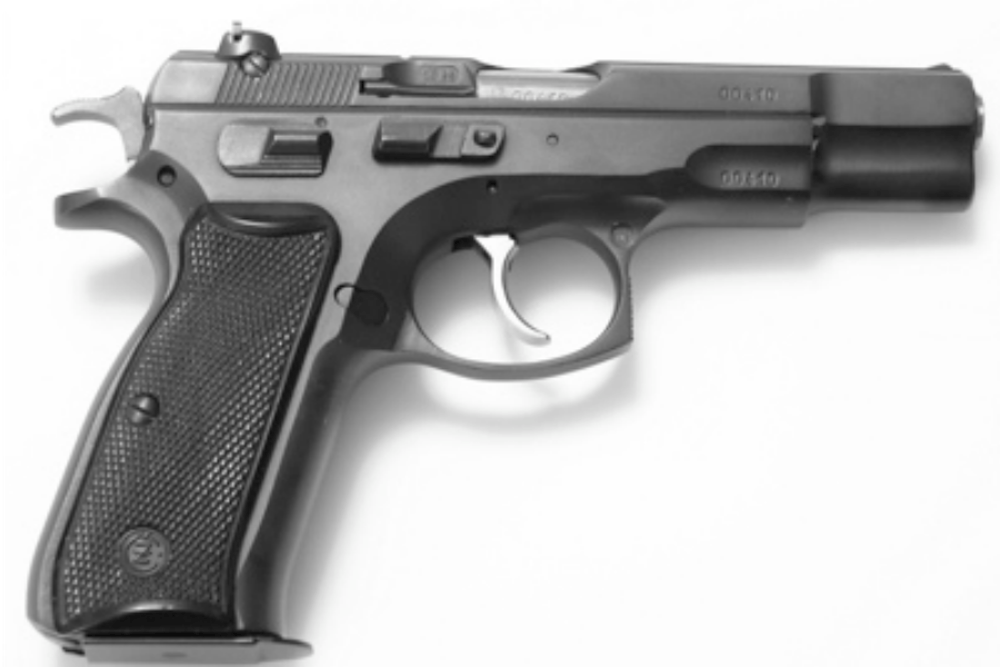Milam's Musings, milambc@miamioh.edu
After the Umpqua Community College shooting in Oregon, President Obama and other gun control activists made the matter of preventing mass shootings easy. Even more problematic is the notion that based on this simplicity, those choosing not to go forth with it have blood on their hands.
In Obama's Oct. 1 speech on the shooting, he said mass shootings had become routine and our response to them routine. He added that the United States is the "only nation on Earth in which we do not have sufficient common-sense gun-safety laws."
"This is a political choice that we make to allow this to happen every few months in America," Obama continued. "We collectively are answerable to those families who lose their loved ones because of our inaction."
Yet, nowhere in Obama's speech does he clarify what "common-sense gun-safety laws" mean. He mentioned our allies, Great Britain and Australia, as models for how we could prevent mass shootings.
However, as I've mentioned in a previous column - I don't want to dwell on the point too long here - there are a variety of reasons why implementing Australia's partial gun confiscation and gun ban in the United States is implausible.
And even if it were plausible, I don't find the proposition of expanding the size of government and in particular, the police state, to ensure it happens a desirable outcome.
Moreover, as is often the case with draconian laws in the name of safety, one can rest assured that new gun control measures, especially as strong as an Australian-type model, would fall most heavily upon poor, minority communities.
As one example, New York City's stop-and-frisk was essentially a gun control policy and it was found unconstitutional in 2013 for violating the constitutional rights of minorities in the city.
The New York branch of the American Civil Liberties Union (ACLU) found from 2003 to 2015, the majority of people stopped were black and brown people between the ages of 14 and 24 and that a great majority of all races were totally innocent.
All of this despite the fact that, according to the New York Times, minorities were less likely to have weapons seized during the stops than white.
All of this is to say, aside from the ambiguity of what is meant by common-sense gun-safety laws and how that would prevent mass shootings, in practice, we have already seen well-documented examples of what tough gun control looks like and it's not pretty for minorities. I only picked out one example in New York City, but Miami Gardens, Florida is another notorious example.
Enjoy what you're reading?
Signup for our newsletter
Anthony Gregory wrote a column titled, "Who Goes to Prison Due to Gun Control," and he pointed out another telling bit of data.
According to the United States Sentencing Commission, for Fiscal Year 2012, 51.2 percent of those sentenced to federal incarceration with a primary offense of firearms violation were black, compared to 27 percent for whites.
As Gregory noted, the "inescapable reality of gun control" is that it, like the War on Drugs and the rest of the criminal justice system, disproportionately harms the poor and minorities. And worse, the crime is for the act of owning something deemed illegal, rather than necessarily the use of that illegal thing.
"When it comes to restricting firearms, liberals have an amazing ability to ignore the hard truth of what they are advocating - putting more people in cages," Gregory added.
At a time when addressing mass incarceration is finally on the table, it's worth driving this point home: stronger gun control quite literally entails more incarceration and more incarceration most likely means more disproportionate incarceration of black and brown poor people.
Following through with that course of action is also in response to something that is incredibly rare in the United States. Despite what the sensationalism of their commonality suggests or how routine it seems to Obama, mass shootings are uncommon events.
The Congressional Research Service published a research paper titled, "Mass Murder with Firearms: Incidents and Victims, 1999-2013," in June 2015.
In their analysis, a mass shooting is defined as, "a multiple homicide incident in which four or more victims are murdered with firearms, within one event, and in one or more locations of close proximity."
The authors of the study found that, while the prevalence of mass public shootings has increased somewhat compared to the 1970s, nevertheless, mass public shootings between that 1999-2013 period accounted for 0.03 percent of the "murder and nonnegligent manslaughter incidents."
"Multiple murders and nonnegligent manslaughter incidents, in which an offender or offenders killed four or more victims, are arguably statistically infrequent," the authors wrote
Furthermore, familicide mass shootings (someone killing four or more family members) are far more likely than public shootings within the broader category of mass shootings, but receive less attention because, well, they're not public in the same way.
Again, all of this is to say, it's worth keeping in mind that predicting something as rare as a mass shooting and when someone will turn violent is tricky business.
Which is why it's odd that Obama made the point of how the United States passed countless laws, spent a trillion dollars and so on, to respond to terrorism since it is also statistically infrequent.
Mass public shootings, like terrorism, capture the public consciousness and understandably so because they're horrific, but it's worth cautioning restraint when it comes to knee-jerk policy proposals, especially when we are in this thorny area of trying to predict violence, whether it's a would-be terrorist or a would-be mass shooter.
As for gun crime more generally, as I also noted in a previous column, the firearm homicide rate is down 49 percent in 2010 compared to its peak in 1993 (3.6 gun homicides per 100,000 people compared to the peak of 7.0).
It's unfortunate we live in a world where complex problems aren't solvable with simple solutions and where our caricatures of our ideological foes are just that.
The gun control proponents seem to stake out a moral high ground on this issue by implying that opponents of more gun control have blood on their hands. But that's a problem of good will.
I feel confident in saying that most people abhor violence. So, give your ideological foes that good will that they, too, abhor violence, even though they disagree with you on how best to address that violence.
As I've pointed out, there are legitimate concerns about the fate of poor minority communities in the wake of tougher gun control, much less anything resembling a replication of Australia's model. I haven't even factored into the formulation my fear of the mentally ill's civil liberties.
And in the course of hurting those communities further, it's to go after something statistically infrequent (although no less tragic or sad, of course) in mass public shootings.
I, for one, do not want to respond to that violence with the violence of increasing an already over-bloated carceral state.




